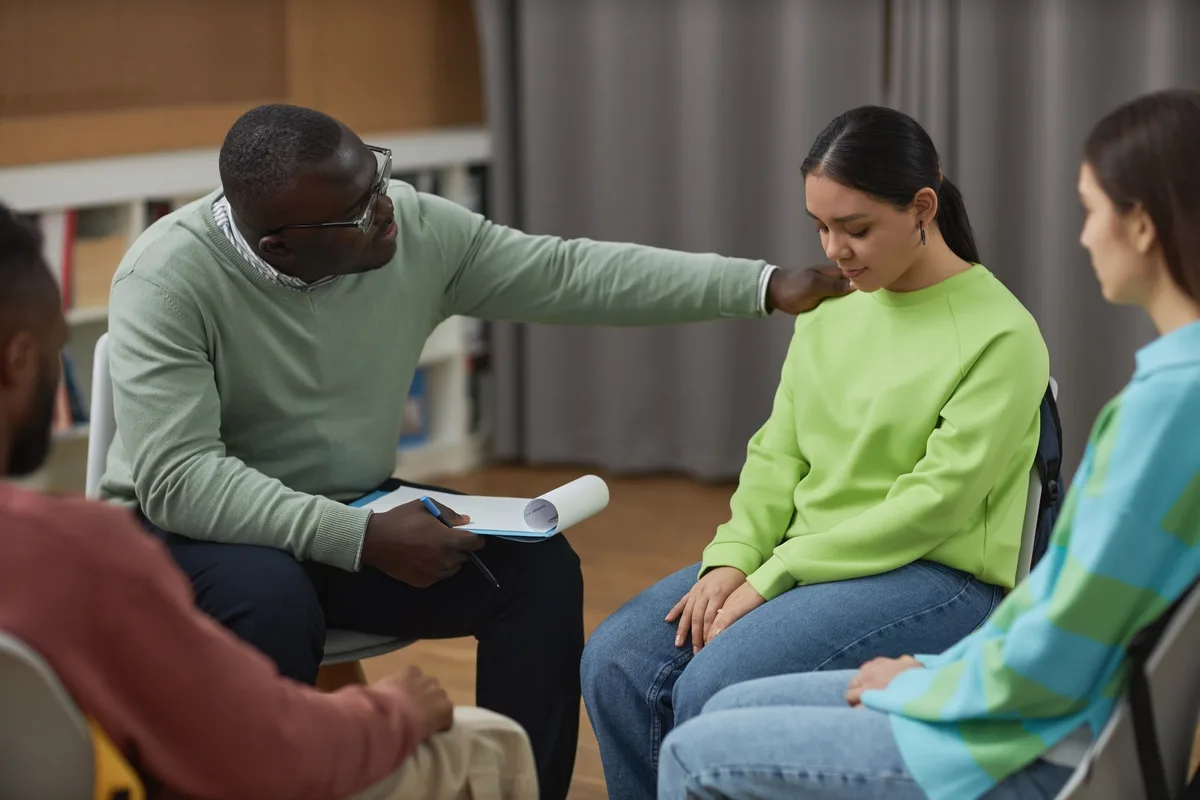24/7 Helpline:
(866) 899-221924/7 Helpline:
(866) 899-2219
Learn more about PTSD Rehab centers in Laurens County

Other Insurance Options

American Behavioral

Multiplan

Sutter

State Farm

Regence

Covered California

Access to Recovery (ATR) Voucher

Coventry Health Care

Meritain

BlueShield

Optima

Evernorth

Horizon Healthcare Service

Cigna

AllWell

GEHA

Absolute Total Care

Health Net

Premera

ComPsych













Promise of Hope – Women’s Location
Promise of Hope – Women’s location is a drug and alcohol rehab center located in Dudley, Georgia. Th...

FCC Behavioral Health – Stoddard County
FCC Behavioral Health - Stoddard County provides intensive outpatient and outpatient adult substance...

Southeast Missouri Behavioral Health
Southeast Missouri Behavioral Health is an outpatient facility that offers treatment for individuals...










































































































